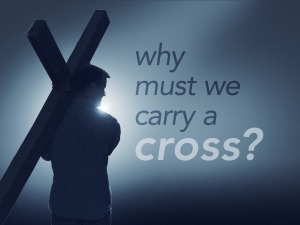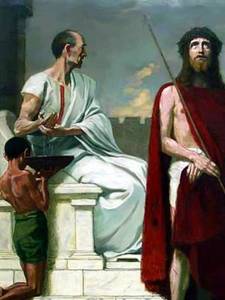Submission and the will of God…
 Whenever I begin a message on submission, I remind my audience that this a very simple message to preach. It’s just a really hard message to live. I can preach it in ten minutes, but it will it take a lifetime of moment by moment surrender to learn it.
Whenever I begin a message on submission, I remind my audience that this a very simple message to preach. It’s just a really hard message to live. I can preach it in ten minutes, but it will it take a lifetime of moment by moment surrender to learn it.
If you could leave all of your preconceived ideas behind and simply study the word submission, you would immediately notice it’s comprised of two ideas: sub and mission. The prefix “sub” means “to be under.” We hear it in the word subway or submarine. But vehicles that travel underground or underwater don’t find their path nearly as difficult as the human soul that attempts to submit its will to another.
Simply put, submission means to place my desires under the purpose of the mission.
No one ever lived out this principle as definitively as Jesus.
In the final week of his life, Jesus spoke with great transparency of his soul’s emotional condition. On Tuesday of the passion week, one of his disciples brought to him a group of non-believers. The teaching moment prompted Jesus to speak about his death. In so doing, he opened up a private window into his soul.
He began by telling of a grain of wheat that falls into the ground and dies that it might bring forth much fruit (John 12:24). The conversation reminded him of his own impending death. And he responded by saying “now is my soul troubled.”
There is such strength and violence in the word troubled. It’s meaning eludes our English language.
The root word tarasso is used elsewhere in the Bible to reveal one’s condition at the loss of a loved one (John 11:33; 14:1, 27). As a pastor, on more than one occasion, I have been the bearer of the news that a loved one has died. I have heard uncontrollable wailing. I have seen sheer terror in the eyes of a the young boy at the news of his father’s death. I have seen the body shake uncontrollably, as emotions refuse restraint. When a parent loses a child, sometimes the soul refuses to be comforted. I have heard of people that responded to this kind of news with vomiting or losing consciousness.
Here is the point: Jesus chooses that word to describe what his soul is doing as he nears the certainty of the cross.
Because prayer has been such a vital resource for Jesus, it shouldn’t surprise us that he bursts into prayer in that moment of terror — as if oblivious to the crowd that has gathered.
“Now is my soul troubled. And what shall I say? ‘Father, save me from this hour’? But for this purpose I have come to this hour. 28 Father, glorify your name.’” (John 12:27-28).
With uncontrollable fear still rising in his soul, he placed his desires beneath the mission. He wanted the Father’s name to be glorified at all costs—even if it meant his impending death.
Because the Father understood the battle taking place in the soul of his son, he spoke from heaven with an audible voice.
Then a voice came from heaven: “I have glorified it, and I will glorify it again” . . . 30 Jesus answered, “This voice has come for your sake, not mine. . . 32 And I, when I am lifted up from the earth, will draw all people to myself.” 33 He said this to show by what kind of death he was going to die (John 12:28b-33).
Having received assurance that the mission will be accomplished (God’s name would be glorified), Jesus referenced his impending death (that’s sub-mission). Jesus provides us with a vivid reminder that our desires (whatever they might be) are to be subjugated to the mission. For Jesus, nothing matters more than the glory of his Father.








